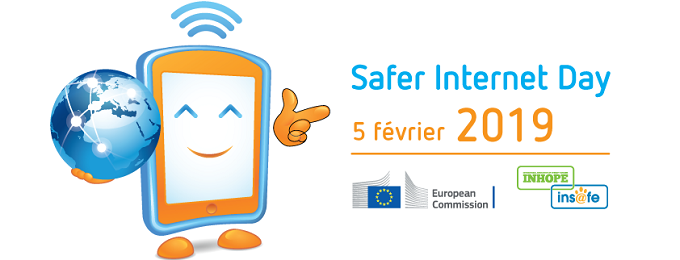During the Safer Internet Day 2019, the European Commission put forward practical measures to further children’s digital literacy and prevent online hazards.
On Tuesday 5 February 2019, the European Commission (EC) announced the creation of a Directorate General for Communications Networks, Content and Technology (DG CONNECT)-led Expert Group on Safer Internet for Children, which will first meet on 6 March 2019. The group, comprising Member States (MS) as well as Icelandic and Norwegian representatives will collaborate on taking decisive steps towards not only limiting harmful content, but also protecting young internet users by establishing parental controls or age ratings. They will also propose concrete measures to tackle unfair commercial practices targeting children in online advertising and the exchanges on how to enforce the Audiovisual Media Services Directive (AVMSD) harmful content provisions and the General Data Protection Regulation (GDPR) parental consent related provisions.
The announcement was purposefully made on the 16th Safer Internet Day (SID), the global yearly event that encourages online safety and raises awareness about more responsible ways to surf the internet for youth. In parallel, the second #SaferInternet4EU campaign carries on last year’s work in furthering digital literacy and critical thinking on cyberbullying, fake news and cyber hygiene. #SaferInternet4EU is one of two initiatives the European Commission enacts under the Digital Education Action Plan (DEAP) in order to address “cybersecurity in education”, together with an online and face-to-face cybersecurity blended course for 6000 teachers of the secondary and primary levels to be ran in 2019 and 2020. This year’s SID saw a variety of events taking place in about 140 countries worldwide, including Switzerland, sometimes running through the entire month, e.g. conferences, interviews of children, but also short movies with a cyberbullying and digital literacy focus.
In a 2018 report on children’s use of technology, the EC’s Joint Research Centre found that although schools and teachers have a strategic role in instilling digital literacy, children attitudes towards the use of ICT tools often mirrors those of their parents. The need for a multi-stakeholder approach when tackling children’s digital literacy is further supported by European funding instruments, such as Horizon 2020, via the call “The impact of technological transformations on children and youth” open until the 14 March 2019. Successful projects under this call will address the context surrounding children’s ICT-use detrimental and beneficial factors, while taking into account the impact ICT-use has on educational inequalities, in order to build a knowledge base for educational practitioners, stakeholders, while also positively affecting communities and schools.
At the European level, a comprehensive network exists to tackle the issue. The umbrella policy adopted in 2012, the European Strategy to deliver a Better Internet for our Children, is implemented by the EC as part of the Digital Single Market strategy set out in May 2012. Coordinated through the Safe Internet Centres, i.e. the INHOPE and Insafe networks, the framework is embodied since 2014 by the Better Internet for Kids (BIK) programme. Moreover, the multi-stakeholder self-regulatory initiative “Alliance to better protect minors”, groups nine actions under three main pillars, i.e. user-empowerment, enhanced collaboration and awareness raising.

